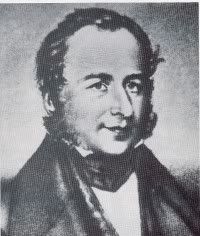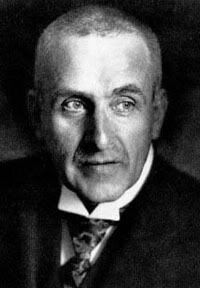In the spirit of Hüffenhardt, it is my pleasure to inform you that the musical Spring Awakening has been nominated for eleven Tonies.
The musical is an adaptation of Frank Wedekind’s drama. When I researched the musical, I discovered that Frank Wedekind’s grandfather is Friedrich Kammerer who is also my ancestor.

Friedrich Kammerer was an inventor and liberal revolutionary. When the authorities decided to prosecute him for his convictions, Kammerer sought refuge in Switzerland. There he started a match factory, cutting edge technology invented by himself. When his liberal compatriots where defeated during the revolution of 1848, Friedrich Kammerer maintained all the refugees until his considerable resources were depleted.
Together many of them emigrated to the United States. The most famous of the group would be Carl Schurz, an ardent supporter of Lincoln who would later become secretary of the interior.
Anyways, Kammerer and his children went to San Francisco. There his daughter Emilie, an opera singer, married one her father’s brothers in arms, Friedrich Wilhelm Wedekind, a retired gynecologist who had made a fortune speculating in California real estate.
Frank Wedekind was conceived in California. But his extended family decided to return to Switzerland where he was born as Benjamin Franklin Wedekind and laid claim to American citizenship.
He wrote Spring Awakening in 1891. The play is a radical critique of society’s double-standards and hypocrisy about sexuality. Wedekind dramatizes teenage sexuality and embraces issues such as fornication, masturbation, pregnancy, and suicide long before Sigmund Freud’s taboo breaking work.
Naturally, Spring Awakening created quite the stir. It took fifteen years before Wedekind could stage the play in 1906.
At a time when Russell Nelson continues to denounce evolution, I have to admit that I am taking vain pleasure to be remotely associated with an author who demanded a more rational engagement of sex and biology. On the other hand, I must admit that as a society we still have not embraced a reasonable attitude with respect to the biology curriculum in public schools.
Mormonism is, of course, deeply implicated in the perseverence of the cultural dysfunction. I can only imagine how much better Mormon children would be better off if they were not told to worry about their sexual nature in such irrational ways.
In that sense, Wedekind had a truly prophetic voice. While he never quite managed to sort out his own sexuality, he laid the foundation for healthy and rational approach to sexuality.
Together with Friedrich Kammerer, Frank Wedekind is an important resource to my children. His work helps me to countermand LDS notions that my girl is not a full citizen and that my boy ought not to fear himself.
May be, Frank Wedekind can be a resource to you as well. NPR posted an interview with the musical’s author’s Duncan Sheik and Steve Sater and included three of the songs. I especially enjoyed the irony of The Bitch of Living.
Totally fascinating. I didn’t know you had a connection to the writer himself, that’s really interesting. I would love to see the musical itself.
I have to admit that I have not seen it yet myself, CWC. I don’t know if you have picked up any German but the text of the drama is available free at Projekt Gutenberg.
By the way, Frank Wedekind grew up in Lenzburg in Kanton Aargau. His father splurged his California real estate profits in part on the Lenzburg castle.
Friedrich Kammerer was an exile in Riesbach, which is today part of Zurich.
I don’t happen to agree with R M Nelson that dogs have always been dogs, but I believe his comment may be evidence that dogma has always been dogma.
Very clever, Dathon!